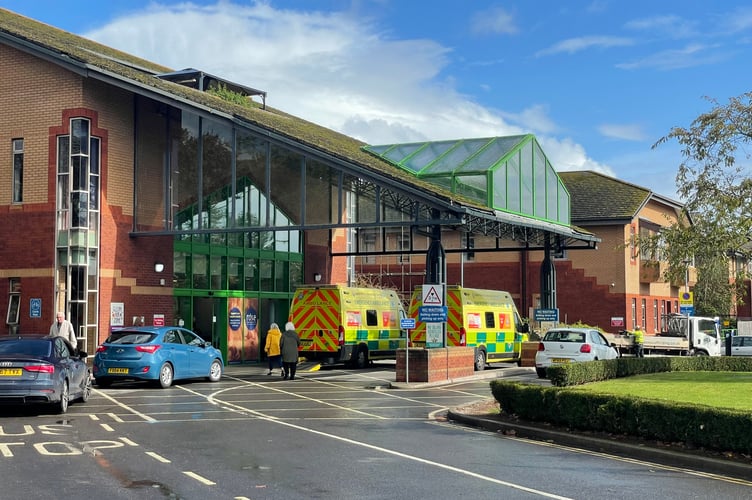The Royal Devon University Healthcare NHS Foundation Trust with its Royal Devon and Exeter Hospital has been selected as one of two hospitals in the UK to launch the brand-new Beads of Courage UK Siblings Programme for children whose siblings have been diagnosed with cancer.
Leading children’s charities, Children with Cancer UK and Beads of Courage UK, have announced the Exeter hospital – which serves people in the Okehampton area – as one of two hospitals to introduce the newly established Siblings Programme.
The programme is designed to support children whose siblings are going through cancer treatment and give them the courage to cope with challenging situations, and has been created as part of a five-year partnership between Children with Cancer UK and Beads of Courage UK.The pilot scheme will roll out to further hospitals across the UK over the next year.
Children taking part in the Siblings Programme at the RD&E will receive a Beads of Courage pack with each bead representing a powerful animal, alongside a collection of stories, helping the child to process and communicate their feelings in their own way – either on a one-to-one basis with a parent or as a shared activity with their poorly sibling.
Once a sibling has been enrolled on the programme, there will be opportunities to participate in quarterly bead challenges to accrue an extra bead, with the events flagged up on the Beads of Courage UK Facebook page.
Each extra bead represents key milestones including birthdays, events and completing treatment such as chemotherapy and captures the moments the two siblings have shared together.
Cara Bennett, play specialist at Royal Devon University Healthcare NHS Foundation Trust, said: she was delighted to host the programe at the RD&E hospital.
“Having a sibling with a serious illness has a significant impact on their lives too and it’s great that we are able to provide support for them with their own bespoke Beads of Courage programme.’’
Survival rates for children’s cancers are improving.
Fifty years ago, three-quarters of children diagnosed with cancer died; today more than eight in ten children diagnosed with cancer in the UK survive. However, with around 4,200 new cases each year in the UK, it is still one of the leading causes of death for children and young people.


-SHELBY-DUNCAN.jpeg?width=209&height=140&crop=209:145,smart&quality=75)


Comments
This article has no comments yet. Be the first to leave a comment.